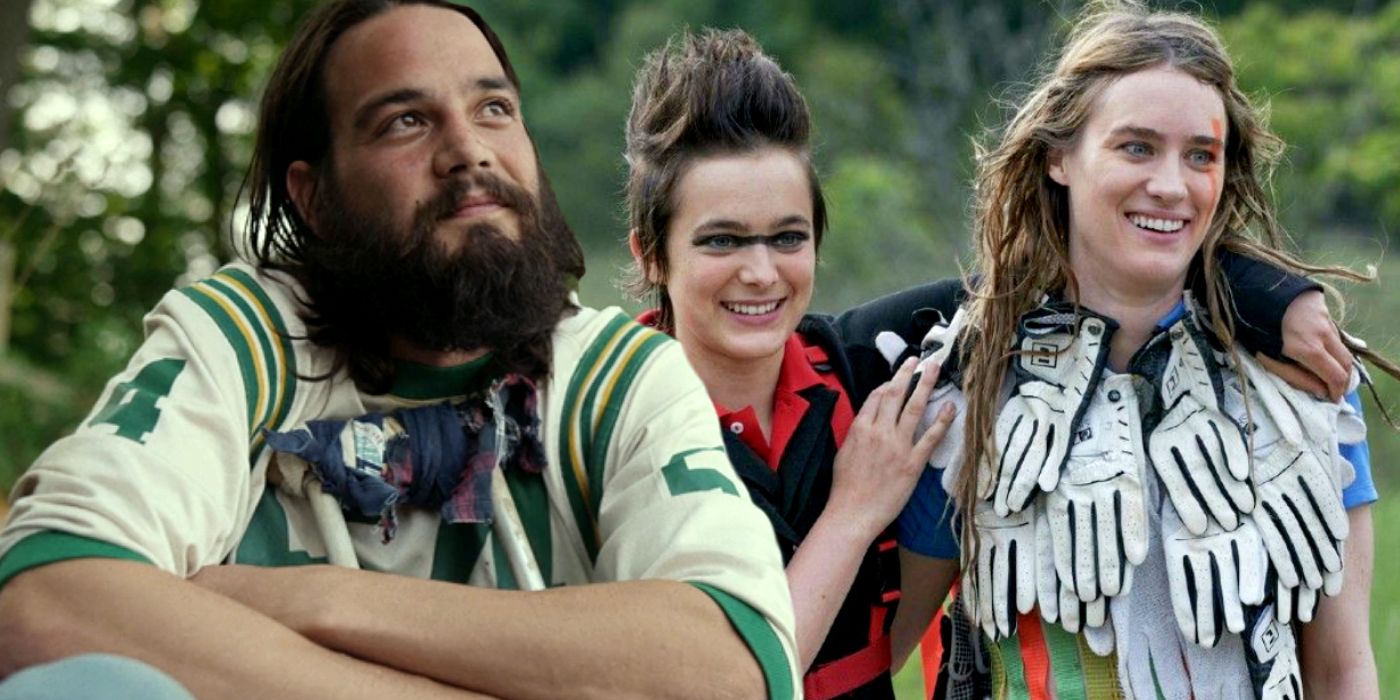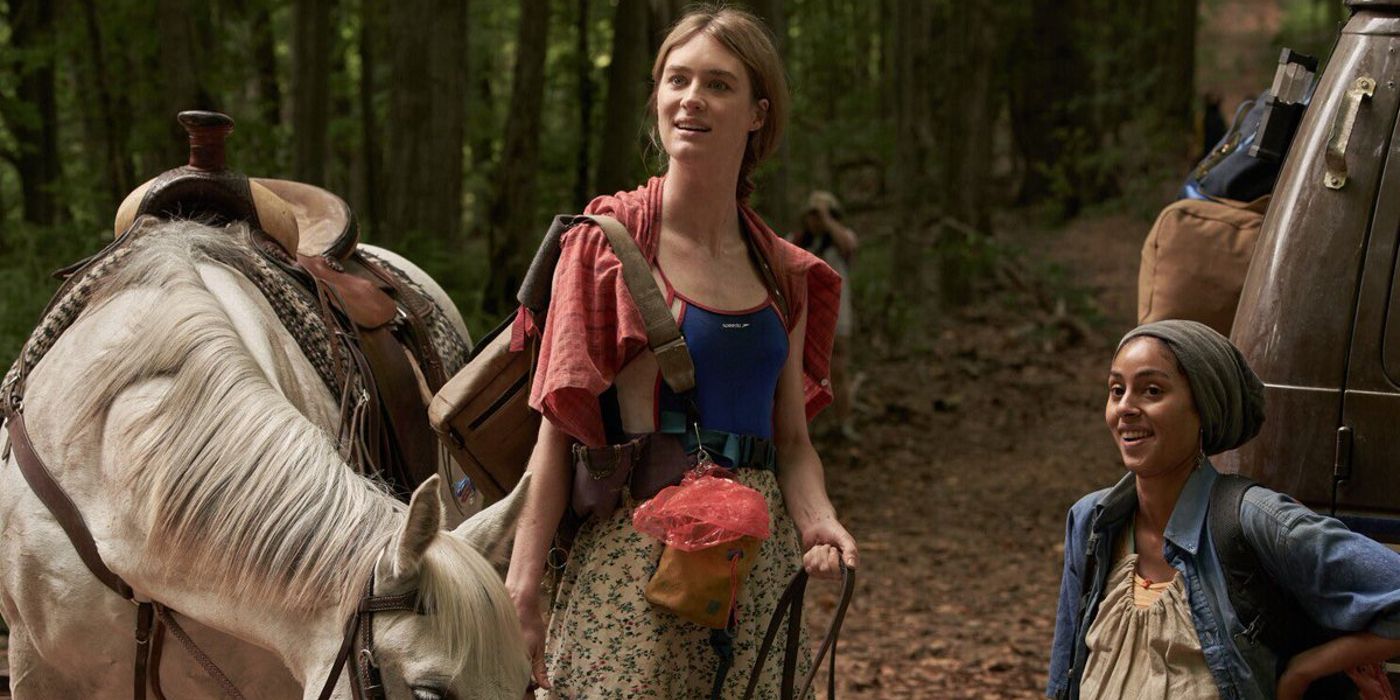Warning: Spoilers for Station Eleven!
Station Eleven has been considered by some to be a poorly-timed release on HBO Max, given the COVID-19 pandemic, but the recently released series depicts a dystopia the right way. Many believed that viewers wouldn't be interested in the dystopian limited series that occurs after a flu pandemic decimates the earth's human population, given the similarities to real-world current events. For some, COVID anxiety may have even kept them from tuning into the ensemble drama, headed by Mackenzie Davis, especially after some of the other dystopian stories that have been popular recently.
But Station Eleven isn't the horror of The Stand, and it isn't the brutality of The Walking Dead, which only has two surviving cast members from the first episode. It isn't the story of humanity's failures in the face of mass tragedy - it is the story of humanity's eternal hope. Extraordinary performances by Davis, who plays Kirsten, Himesh Patel as Jeevan, Daniel Zovatto as The Prophet, and Lori Petty as Sarah build a foundation for the rest of the cast to connect easily with viewers. And Matilda Lawler and Julian Obradors - who plays young Kirsten and young Tyler - remind audiences of the very real children living through current events.
Based on the novel by Emily St. John Mandel, Station Eleven succeeds at reminding audiences why these tragic stories matter in the first place. The world the show creates isn't perfect, and there are dangers that face the survivors as they make their annual travels along "the wheel." But by delving into the history of the trauma that Kirsten lived through during the early days of the pandemic and seeing Tyler's ostracization from the airport, audiences are given windows into the reasons they make the choices they do during the course of the show. By humanizing the Traveling Symphony members, the community at the Severn City Airport, and the Prophet, the show solves one of the biggest problems in dystopian science fiction. Station Eleven clarifies that the trauma Kirsten endured during the pandemic has led her to be distrustful of strangers, willing to kill when necessary, and protective of those she loves. It does the same for Tyler, who was treated as a villain by the community at the airport, even as a child. The contrasts between the two young characters and who they become as adults come down to the difference in the way they were treated by the community that they found themselves a part of when the world ended. With plenty more science fiction coming in 2022, Hollywood can learn from this type of uplifting storyline in a world stressed by the pandemic.
Not only does Station Eleven remind viewers of all of its characters' humanity, but it also reminds us of the best parts of humanity's existence. Art, theatre, music, and stories are the focus of so much of Station Eleven's hopefulness and serve as the connective tissue between the different communities. The plays of Shakespeare, the creativity and communal contributions to the running of the Traveling Symphony through costumes, writing, and performing, the creation of the Museum of Civilization, and the graphic novel that both Kirsten and Tyler have committed to memory all link the characters to each other and the past. But HBO Max is making great television right now, and Station Eleven's hope springs from the fact that the characters aren't trying to get back to "before." Their optimism stems from embracing what has become of the world and spreading joy to those they can reach.
Sci-fi has been trying to teach humanity what to avoid for centuries, most often with dystopian worlds that are populated with hatred and greed, like Mad Max: Fury Road which focuses on climate change in a doomed, dry world without a sense of community. Station Eleven embraces art, community, and acknowledging trauma as a source of hope and optimism, which turns the genre on its end. The hopelessness and futility of fighting death is far more interesting and subversive when it is transformed into the acceptance of past events and the conviction to keep joy alive.


